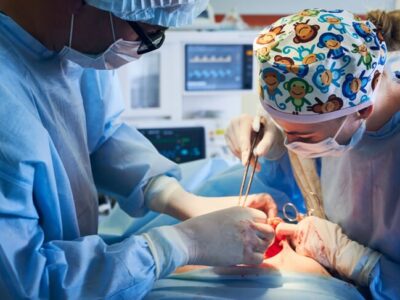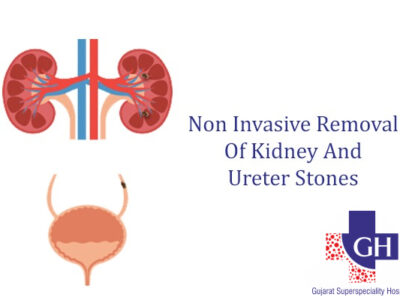The kidneys are a pair of bean shaped organs that are located below the rib cage, one on each side of the spine. The right kidney is generally slightly lower than the left kidney to make space for liver. The kidneys help remove the waste products from the body, regulate blood pressure levels and maintain the electrolyte balanced in the body.
Structure of Kidneys
Each kidney is covered by a tough, fibrous renal capsule which provides support to the soft tissue inside. The adrenal glands lie on top of the kidneys. Inside the kidneys are number of pyramid shaped lobes. Each of these consists of an outer renal cortex and an inner medulla. Nephrons flow between these sections. Each nephron includes a filter, called the glomerulus, and a tubule. The glomerulus filters blood, which enters the kidney through renal arteries and leaves through renal veins. The tubule returns necessary substances to the blood and removes waste that then becomes urine. The kidneys excrete urine through a tube like structure called ureter, that leads to the urinary bladder.
Function of The Kidneys
The main role of kidneys is to maintain homeostasis. It manages the fluid levels as well as the electrolytes that keep the internal environment of the body balanced. The kidneys perform a wide range of bodily functions.
Waste excretion– the kidneys remove the waste products from the body and get rid of them in the urine. The compounds that kidneys remove are urea, uric acid, drugs and other metabolites.
Reabsorption of nutrients- the kidneys reabsorb nutrients from the blood using tubules and transport them. The products that are reabsorbed include glucose, amino acids, bicarbonates, water, phosphate, chloride, magnesium, sodium and iron.
Maintaining pH levels- the acceptable pH levels in human body is 7.35-7.45. At levels above or below this range the body enters into alkalosis or acidosis respectively. The kidneys and lungs help keep the pH stable. The kidneys manage the pH by reabsorbing and producing bicarbonates from urine, which helps neutralize acids. The kidneys can retain bicarbonate if the pH is tolerable and release it if acid levels exceed. It can also produce new bicarbonates by excreting acids.
Regulating blood pressure levels- the kidneys regulate the blood pressure levels when necessary, but are responsible for slower adjustments. They adjust long term pressure in arteries by causing changes in the fluid outside the cells. These changes occur after release of vasoconstrictor called angiotensin II.
Functioning of Kidneys
Healthy kidneys filter about a half cup of blood every minute, removing wastes and extra water to make urine. The urine flows from kidneys to bladder through ureters, the bladder stores the urine. Each kidney is made up of millions of filtering units called nephrons. Each nephron includes a filter called glomerulus and a tubule. The nephrons work through a 2-step process- the glomerulus filters your blood, and the tubule returns needed substances to your blood and removes wastes.
Glomerulus filters blood- as blood flows into each nephron, it enters a cluster of tinny blood vessels called glomerulus. The thin walls of the glomerulus allow smaller molecules, wastes and fluids to pass through the tubules. Larger molecules like proteins and blood cells remain in the blood vessels.
Tubules return the needed substances to blood and removes wastes- a blood vessel runs alongside the tubule. As the filtered fluid moves along the tubule, the blood vessels re-absorbs almost all of the water, along with the minerals and nutrients that your body needs. The tubule helps remove excess acid from the blood. The remaining fluids and wastes in the tubule becomes the urine.
When to consult a healthcare provider for kidneys?
Kidney conditions can cause different symptoms in different people. If your kidneys aren’t working properly and have signs and symptoms of kidney problem then one must visit a kidney hospital. Gujarat Kidney hospital at Vadodara is the best kidney hospital where Dr.Pragnesh Bharpoda best kidney doctor offers effective treatment for kidney diseases


